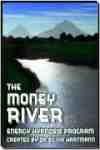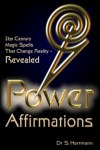Business Web Marketing Article
The Google Grand Conjunction
How to extract winning keywords
and design high performance web pages
by Silvia Hartmann
One of the most, if not THE MOST important aspects of formatting a page for
search engine success is the concept of MATCHING.
Your content needs to MATCH the hyperlinks on your page.
You need to MATCH the images to the content.
You need to match the content to the title.
The title needs to match the meta title.
The description needs to match the content, and the keywords, and the images
and all of it NEEDS TO BE ALIGNED to the same end, basically.
It is incredible how many people either don't know this or just don't work it
in practice.
I think that web marketeers and even professionals get hung up about some
"special" keywords and develop tunnel vision.
For example, they might THINK that the keyword they need is "hypnosis CD", so
they flood their keywords and such with that word, probably even the text.
But that really isn't it and it's not how it works.
The reason that it isn't where it's at is because CUSTOMERS AREN'T SEARCHING
FOR HYPNOSIS CDS.
Anyone who's had a search engine for more than five minutes has LEARNED that
this query will return 123,000,000,000 webpages and none of them are what you
really wanted in the first place.
Right?
Would YOU put "hypnosis CD" into a search engine?
Well, of course you wouldn't.
You'd stipulate more qualifyers and quantifyers.
Such as, "hypnosis CD to get me to sleep" - and now, we're in the keyword wilderness
territory.
As soon as you get more than one or two words, the variations on what REAL
LIVING PEOPLE actually type in become insanely endless.
You could say, it becomes totally unpredictable and way too complicated to
even try and make a web page for this.
So, what we have to do is
work it the other way around, namely by focussing
in on OUR OWN PRODUCT or the article or OUR OWN CONTENT - and then FLAG IT
CORRECTLY so folk who are searching for this can successfully find it.
This is a reversal movement of "presenting" something rather than
"trying to run after the customers", and if you can get your head around it, the
search engine world is your oyster.
So let's say for example that I want folk who suffer from sleepless nights
and type in just about anything either then or the next grey weary day in the
office to FIND my Lullaby Delta Trance Deep Sleep Hypnosis CD.
How do you like that product title?
Do you know what it is, or do I have to explain this further?
This is a bit of a side track but if you are now making new products or
services, there is much merit in TITLING the thing in such a way that folk are
left in no doubt as to what it is and what it does, because that helps so
immensely with internet marketing. It also helps with all other forms of
marketing, of course, and is a good habit all around.
So.
The Lullaby Delta Trance Deep Sleep Hypnosis CD
That's our page title and meta title, it is our product title and appears in
sales calls, sales links, and the alt and image title tags for the cover. You
can also use it to name page components such as:
<img src="lullaby-green-divider.jpg" title="Lullaby Delta Trance Deep Sleep
Hypnosis CD theme green divider" alt="Lullaby Delta Trance Deep Sleep Hypnosis
CD Green Divider">
That whole phrase is also a single keyword set and now, and without ANYTHING
ELSE, we already have a basic set of full matching components to make a
satisfactory display for our spidery robots so they may deliver this to anyone
searching on any combination or variation of these things.
That page is safe, sound, and it will be served (aha! served!)
TO seekers
worldwide now.
Now we can personalise this further. And we do NOT do this by keyword
research or "brainstorming possible keywords" because frankly, you can't second
guess 25 million INDIVIDUALS, or you'd just go mad, basically.
You would also dilute your page to uselessness, so instead, we now write an
explanation, sales page, infomercial, article, or whatever to PROVIDE FURTHER
INFORMATION about the product or service.
In the case of the Lullaby (Lullaby Delta Trance Deep Sleep Hypnosis CD!), I
simply wrote down why and how we made it, and why it works, using NATURAL
LANGUAGE all the way through.
Here is an excerpt from that text:
After a day straight out of a horror movie, I
crawled off to bed with a raging headache. The muscles in my back were locked
tight and the pain in my head so bad now, it was streaming out into my jaw and
teeth, and exhausted as I was, I could not find rest, or drop off to sleep.
What do you do?
I don't do sleeping pills, so I cast around for a hypnotic meditation to take my
mind of my troubles and help me get to sleep. But even my favourite meditation
was on this occasion, just not up to the task.
It had too much going on, asked too much of me in the way of co-operation,
relaxation, "feeling all comfortable" and I had literally NOTHING left to give.
It didn't work and I spent the night in HELL.
So now, to find the keywords to match this text.
That's really quite simple.
You look at THE TEXT THAT IS THERE and highlight the unique phrases (and
guess what, now that you've written something like a human being would, YOU
ACTUALLY HAVE SOME! unique phrases!!) to give you your keywords.
After a day straight out of a horror movie, I
crawled off to bed with a raging
headache. The muscles
in my back were locked tight
and the pain in my head so bad
now, it was streaming out into my jaw and teeth, and exhausted as I was, I could
not find rest, or
drop off to sleep.
What do you do?
I don't do sleeping pills, so I
cast around for a hypnotic meditation
to take my mind of my troubles and help
me get to sleep. But even my favourite meditation was on this occasion,
just not up to the task.
It had too much going on, asked too much of me in the way of co-operation,
relaxation, "feeling all comfortable" and I had literally
NOTHING left to give.
It didn't work and I spent the
night in HELL.
Let's type them down, just for an exercise:
<meta name="keyword" content="raging headache, muscles locked tight, pain in
head, find rest, drop off to sleep, sleeping pills, hypnotic meditation, help me
get to sleep, nothing left to give, night in hell">
Now of course, that's not all the keywords (you should think key
PHRASES really, that's much closer to the truth) we will have on the
page. The product title and description as above, The Delta Trance Deep Sleep
Hypnosis CD Lullaby, are in evidence too, but this is about getting the real
keywords, the one that put YOUR PAGE on the top ten out of millions of
competitors.
These keywords COME FROM THE TEXT that is there, rather than any
manipulation; in other words, THEY MATCH THE TEXT perfectly.
Not only that, they MATCH EACH OTHER and clearly belong to a logical set that
although it doesn't strictly add the numbers in a linear fashion on keyword
density, actually enhance each other because they're all to do with the topic -
namely someone who can't sleep finding our page and buying the CD as the result.
Lastly, chances are they will MATCH what REAL HUMAN BEINGS type into the
search engine.
You got to think of the search engine spider robots as NOT THE END RESULT of
the game, but simply little eight legged messengers that relay between you and
all the people out there who really NEED AND WANT YOUR STUFF.
The end result is of course, PEOPLE and NOT robots.
Robots buy nothing.
So, and to sum up, here are the main principles once more in brief.
1. Each page you make is a separate creation and must be treated completely
as a unit in its own right, with all components designed for that one single
page.
2. The most important thing is to MATCH all components of the page to the
PURPOSE of the page. The purpose of the page is the title and that should be
totally explanatory in one sentence of what the page is about.
3. Matching the image descriptions, title tags, hyperlinks, meta description,
meta title, etc. to the purpose of the page brings a harmonic UNITY OF
PRESENTATION which is what the spiders are actually looking for.
4. Beyond the repetition of the main keywords from the title/description, in
the content section (meta content, meta keyword) you extract the unique phrases
of natural language that YOU USED to describe the purpose of the page. THIS IS
WHAT MAKES YOUR PAGE ABSOLUTELY UNIQUE and lifts it up and above the faceless
crowd of folk who just lob in the keywords THEY thought they SHOULD be trying
for.
5. It is in the conjunction of MATCHING the title set (meta title, meta
description, page component titles and descriptions) AND the keyword set (actual
page content, meta content and meta keywords) to each other that the uniqueness
arises that is being so highly treasured by the robotic friends to list you.
6. If you can get this grand conjunction, you will have a page that IS
EXACTLY WHAT IT SAYS IT IS and being presented to visitors as EXACTLY WHAT IT IS
- and the visitors are delighted because THAT'S EXACTLY WHAT THEY WERE SEARCHING
FOR.
7. So not only is this good sense in every way for the robots and the search
engine listings, but also for anyone who wants SPECIFIC people to COME TO
THEM and be-come visitors who turn into (customers, contributors, contacts etc).
And, once again, you don't need to be sly or super-clever, just the one thing
that so very few people seem to be - sensible, upfront, honest and just CORRECT
in their alignment between description, product, purpose and performance.
Isn't it nice to know that it's true - the REALLY good guys ALWAYS come
FIRST?
Enjoy your web marketing!
Silvia Hartmann
The StarFields Network
http://starfields.net
|





